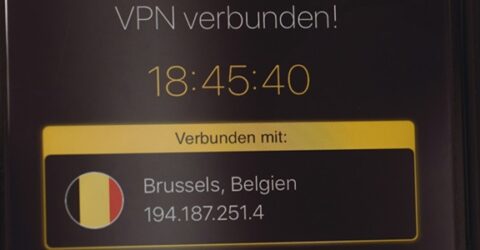When to use a VPN – and when not to
We explain when to use a VPN (and when not to) depending on your need for privacy, speed and safety

If you’re not especially internet-savvy, the concept of a Virtual Private Network could cause your eyes to glaze over.
Bear with us, though, because VPNs are very useful – and surprisingly simple. You don’t need any technical expertise to benefit from a more secure internet connection.
VPNs are growing in popularity as western societies move away from sharing the minutiae of their lives online, in favour of reasserting a sense of privacy.
However, it’s not always clear when to use a VPN, so we’ll examine a few practical scenarios after a brief summary of how this technology works.
Third party cover
A couple of years ago, we published a comprehensive guide to VPNs, which you can read here.
In essence, VPNs establish a two-way tunnel between your device and the internet, which prevents third parties viewing any information as it’s sent back and forth.
Those third parties include your ISP and anyone who may be spying on your activities legitimately or otherwise – cybercriminals, security services, and so forth.
There’s nothing immoral or dangerous about installing and using VPNs, which represent a key weapon in the battle against data harvesting.
They enable you to explore the internet without leaving any digital footprints behind, which shady marketing companies could endlessly resell to support targeted advertising.
Using a VPN is usually as simple as downloading a particular service provider’s software app onto your computer or mobile device.
There are numerous competitors, including the well-known NordVPN, Surfshark, IPVanish and ExpressVPN platforms.
Some offer basic free connectivity while others charge for more advanced protection, but they all function along similar principles.
Before browsing the web, open your VPN app and click the button to activate or connect it.
The VPN begins acting as a bridge between your ISP and whichever sites or services you’re wanting to access through your device or web browser.
These sites and services won’t be able to identify who (or even where) you are unless you log in, because every data packet is distributed via the VPN’s own secure servers, which appear to be the endpoint.
The ensuing benefits help to determine when to use a VPN…
- While accessing an insecure website. Any site which doesn’t have a https prefix is sending unencrypted data through cyberspace, which anyone could intercept and spy on.
- When connected to public WiFi. We’ve written before about the security dangers of communal WiFi networks with shared passwords, but VPNs make them safe to use.
- When avoiding georestrictions. These can seemingly be arbitrary, due to licensing requirements, and a VPN could help you view otherwise blocked content.
- Maintaining ISP privacy. Some people may feel uncomfortable with their broadband provider knowing what they do online. Logging onto a VPN effectively closes the curtains.
Should I always use a VPN?
VPNs work best while browsing the internet as an anonymous observer. Once you log into a website or app, their privacy benefits are cancelled out.
Because data has to travel to and from the VPN’s servers, its progress is slowed, which is detrimental to streaming and online gaming – especially on slower internet connections.
VPNs don’t offer any extra protection against malware, so they’re no replacement for a regularly updated antivirus package.
Finally, don’t assume a VPN is completely foolproof.
Even a no-logs provider (which doesn’t store much user data) has to provide any info it does retain to government agencies on demand, while a few VPNs have been hacked in the past.






